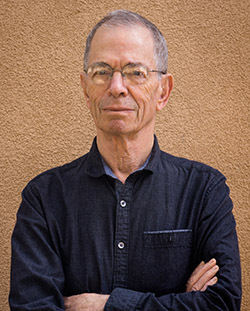In 1961, 20-year-old Peter Sterling left Cornell University to join the Freedom Rides in Jackson, Mississippi where he was arrested and jailed. That experience shaped his eventual career as a neuroscientist and for the next 20+ years, Sterling split his time between the microscope and the streets of poor communities. What he found is an alarming correlation between social tension and hypertension that challenges the traditional way America views health.
A lifelong political activist and prominent neuroscientist, Sterling believes that society has narrowed the opportunities for Americans to exercise our innate gifts — especially those who are in poor and marginalized communities — and that this mismatch has only increased “deaths of despair.” Join us as we welcome Dr. Sterling to Notre Dame to share his view of what health is: equality, education, community, and the belief that your life actually matters.
This event is co-sponsored by the Pulte Institute for Global Development and the Klau Center for Civil and Human Rights, both integral parts of the University of Notre Dame’s Keough School of Global Affairs, and is open to the public.
Register to attend in-person >
Register to attend online >
Event Resources
Below is a list of resources to help you prepare for the lecture. Click here to see more opportunities to hear Peter Sterling speak in South Bend.
- Video: What is Health? (Cornell University, September 2021)
- PDF: What is Allostasis?
- Video: Conversatorio sobre racismo
- Essay: Human design in a post-COVID world (Mad in America)
- Essay: How neuroscience could explain the rise of addictions, heart disease, and diabetes in 21st century America (TIME)
- Follow Peter Sterling on Twitter @whatishealth21.
About Peter Sterling

Peter Sterling is professor of neuroscience at the University of Pennsylvania School of Medicine. In his forty years there, he has studied brain architecture and function in the laboratory and taught neurobiology to medical and graduate students. Beyond the laboratory, Sterling has been a social activist, for example, participating in the Freedom Rides (1961), and visiting various indigenous communities in Central America.
These experiences led him to explore the neural mechanisms by which racism and social inequality impair health — leading to a new model of physiological regulation, termed “allostasis.” He has written two books, Principles of Neural Design (2015, with Simon Laughlin) and What is Health? (2020). The origins of his social activism are described in reflection, "Why I Joined the Freedom Rides" in Current Biology (June 2021). Most recently he published with Michael Platt, "Why Deaths of Despair Are Increasing in the US and Not Other Industrial Nations—Insights from Neuroscience and Anthropology.
Sterling attended Cornell University (1958-61), then a year in medical school (New York University), then earned a PhD in neurobiology (1966) at Western Reserve University in Cleveland, Ohio. He next moved to Harvard Medical School (1966-69) for postdoctoral study and finally reached the University of Pennsylvania where he established his own laboratory to study fine scale neural circuits (1969-2009). Since closing his laboratory, Professor Sterling has wintered on a small farm in the mountains of western Panama (November-May) and summered in an agricultural region in the Connecticut River valley in western Massachusetts.
Follow Peter Sterling on Twitter @whatishealth21.
Originally published at pulte.nd.edu.